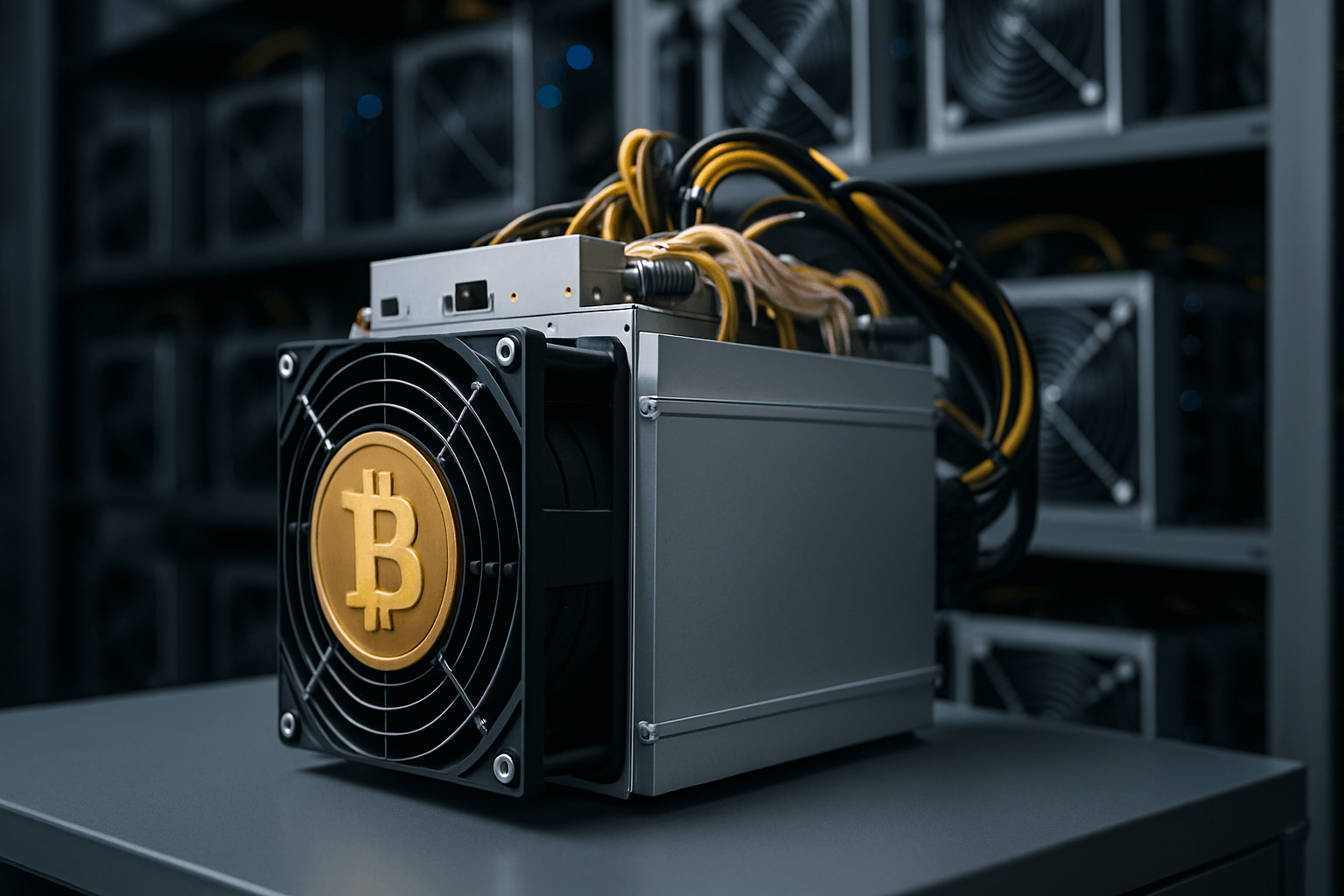Crypto & DeFi
What Is DeFi and How Does It Work?
August 14, 2024
Crypto & DeFi
August 14, 2024

Learn all about the exciting world of DeFi and how it's revolutionizing finance
Many industries have been changed by digital disruption and the traditional financial sector is no exception. In particular, a rapidly growing movement called "Decentralized Finance" seeks to transform traditional finance using blockchain technology.
Decentralized Finance, or "DeFi" for short, aims to recreate traditional financial services in a decentralized, transparent, and open-access manner. No longer dependent on banks, brokerages or exchanges that act as middlemen, the DeFi model aims to allow individuals from any part of the world to access financial services—like lending, borrowing, savings, payments, and more—directly through code on the blockchain.
This new financial ecosystem not only empowers users by giving them full control over their assets but also offers the potential for financial innovation at an unprecedented scale. Here is everything you need to know about what DeFi is, how it works, its popular use cases, and some of the most prominent protocols in the space.
Decentralized Finance (DeFi) refers to a broad category of financial applications built on blockchain networks, particularly Ethereum, that aim to replicate and enhance traditional financial services in a decentralized way. Unlike traditional finance, where intermediaries such as banks and financial institutions manage transactions, DeFi operates through smart contracts—self-executing contracts with the terms of the agreement directly written into code.
DeFi applications enable users to engage in various financial activities, such as lending, borrowing, trading, and investing, without the need for intermediaries. This decentralized nature provides several advantages, including increased accessibility, lower costs, transparency, and security.
The key characteristics of DeFi include:
At the heart of DeFi are smart contracts, self-executing programs that run on blockchain networks like Ethereum. These contracts contain the rules and logic for various financial operations and automatically execute when predetermined conditions are met.
Here's a simplified explanation of how DeFi works using smart contracts:
DeFi has given rise to a wide range of financial applications and use cases. Here are some of the most popular:
Decentralized exchanges, or DEXs, allow users to trade cryptocurrencies directly with each other without the need for a centralized authority. Unlike traditional exchanges, where users deposit funds into the exchange and trade through the platform, DEXs enable users to retain control of their assets throughout the trading process.
DEXs operate through smart contracts that facilitate the exchange of assets between users. These contracts ensure that trades are executed fairly and transparently. Uniswap, one of the most popular DEXs, uses an automated market maker (AMM) model, where users trade against a liquidity pool rather than directly with another user. This model allows for continuous liquidity and eliminates the need for order books, which are typically used in traditional exchanges.
Lending and borrowing are fundamental activities in the financial world, and DeFi has revolutionized how these activities are conducted. DeFi lending platforms allow users to lend their assets to others and earn interest in return. Conversely, borrowers can take out loans by providing collateral in the form of cryptocurrencies.
DeFi lending platforms operate through smart contracts, which automatically execute the lending and borrowing process. When a user deposits assets into a lending platform, the smart contract locks these assets and issues interest-bearing tokens to the lender. Borrowers, on the other hand, must deposit collateral, which is held by the smart contract until the loan is repaid.
DeFi lending platforms offer several advantages over traditional lending, including faster transactions, lower fees, and increased accessibility. Moreover, since the entire process is managed by smart contracts, there is no need for credit checks or lengthy approval processes.
Yield farming, also known as liquidity mining, is a DeFi practice where users earn rewards by providing liquidity to DeFi platforms. This process typically involves depositing assets into a liquidity pool, which is used by the platform for trading, lending, or other activities. In return, liquidity providers earn rewards in the form of additional tokens or fees.
Yield farming has become one of the most popular activities in DeFi due to the high returns it can offer. However, it also carries significant risks, as the value of the assets in the liquidity pool can fluctuate, and smart contracts can be vulnerable to exploits.
Yield farmers often move their assets between different platforms to maximize their returns. This process is known as "farming" because users are constantly seeking the highest yields across the DeFi ecosystem.
Stablecoins are another essential component of the DeFi ecosystem. These are cryptocurrencies that are pegged to the value of traditional assets, such as the US dollar. Stablecoins provide a stable store of value in the volatile cryptocurrency market, making them a popular choice for trading, lending, and other financial activities.
Stablecoins are typically backed by reserves of the underlying asset or by algorithms that adjust the supply of the stablecoin to maintain its peg. Some of the most popular stablecoins in DeFi include DAI, USDC, and Tether (USDT).
These are tokenized representations of real-world assets, allowing users to gain exposure to stocks, commodities, or other financial instruments without leaving the crypto ecosystem. The benefits of Synthetic Assets include:
The DeFi ecosystem is home to numerous protocols that enable decentralized financial services. These protocols are the building blocks of the DeFi ecosystem, providing the infrastructure for trading, lending, borrowing, and other activities. Some of the most popular DeFi protocols include Uniswap, Aave, and Compound.
Rocko is a non-custodial crypto-loan marketplace designed to simplify decentralized lending and borrowing within the DeFi ecosystem. Operating as a user-friendly gateway, Rocko integrates with leading DeFi protocols like Aave, Compound, and Morpho, enabling users to compare competitive loan rates and secure loans using crypto assets such as Bitcoin, Ethereum, Solana, and other tokens as collateral. By streamlining access to these protocols, Rocko allows users to borrow stablecoins like USDC directly to their wallets, maintaining exposure to their crypto holdings while unlocking liquidity for real-world uses, such as paying bills or investing in property, all without credit checks.
Rocko’s platform is built with accessibility and security in mind, offering a seamless interface that abstracts the complexity of DeFi for beginners while providing robust tools for experienced users. Loans are facilitated through audited smart contracts, and Rocko’s non-custodial wallets ensure users retain full control over their private keys, minimizing counterparty risk. The platform charges a transparent 1% service fee on new loans and loan increases, with no hidden costs. Interest rates are dynamic, adjusting based on the underlying protocols’ market conditions, and users can monitor their loans via a comprehensive dashboard with real-time alerts for collateral value changes or liquidation risks.
Key features of Rocko include:
Uniswap is a decentralized exchange (DEX) protocol that allows users to trade cryptocurrencies directly from their wallets. Unlike traditional exchanges that rely on order books, Uniswap uses an automated market maker (AMM) model, where users trade against a pool of assets provided by liquidity providers.
Uniswap has become one of the most popular DeFi protocols due to its simplicity and accessibility. Users can easily swap between different tokens without the need for intermediaries, and liquidity providers can earn fees by contributing to the liquidity pools. Uniswap's open-source nature has also led to the creation of numerous forks and variations, further expanding its influence in the DeFi space.
Key features of Uniswap include:
Aave is a decentralized lending and borrowing protocol that allows users to lend and borrow a wide range of cryptocurrencies. Aave introduced several innovative features to the DeFi space, including flash loans and credit delegation.
Flash loans are uncollateralized loans that must be repaid within a single transaction. This unique feature allows users to take advantage of arbitrage opportunities or refinance their positions without the need for collateral. Credit delegation, on the other hand, allows users to delegate their credit to another user, enabling them to borrow assets without providing their own collateral.
Aave's flexible and user-friendly platform has made it one of the leading DeFi protocols, with billions of dollars in assets locked in its smart contracts.
The key features of Aave include:
Compound is another leading DeFi protocol that focuses on decentralized lending and borrowing. Like Aave, Compound allows users to supply and borrow assets, earning interest on their deposits. When users supply assets to Compound, they receive cTokens in return, which represent their claim on the supplied assets and the interest earned.
Compound's interest rates are determined algorithmically based on the supply and demand of each asset, ensuring that the rates are always competitive. The protocol's decentralized governance model allows users to vote on changes to the platform, giving the community control over its development.
The key features of Compound include:
DeFi (Decentralized Finance) represents a paradigm shift in how we think about and interact with financial services. By providing an open, permissionless, and transparent financial system, it has given rise to a wide range of financial applications and use cases, including decentralized exchanges, lending and borrowing platforms, yield farming, stablecoins, and synthetic assets. While there are many benefits, there are also risks, including loss of funds, so prospective users should conduct their own research before participating.
As the DeFi space continues to evolve, we can expect to see even more innovative applications emerge, offering users greater financial freedom and control. With its potential to democratize access to financial services, DeFi is poised to play a significant role in shaping the future of finance!
Rocko is a new platform that enables crypto owners to easily and securely borrow from popular DeFi protocols like Aave, Compound, and Morpho and get funds in minutes — no experience needed! Use the loan to purchase real estate, pay down higher-rate debt, make everyday purchases, and much more.
Rocko also provides a loan management dashboard and tools like text and email alerts to help manage your loan and collateral. The Rocko team consists of experienced crypto enthusiasts who are ready to help you with any questions you may have. You can join the Rocko Discord server, follow our Twitter account, or visit our resource center to learn more about DeFi borrowing.
Sign up for Rocko and get a loan today!
Rocko does not guarantee the reliability of the Site content and shall not be held liable for any errors, omissions, or inaccuracies. The opinions and views expressed in any articles on rocko.co are solely those of the author(s) and do not reflect the opinions of Rocko. The information provided on the Site is for informational purposes only, and it does not constitute an endorsement of any of the products and services discussed or investment, financial, or trading advice. A qualified professional should be consulted prior to making financial decisions.

Rocko How-tos
Lock In Your Rate: How Kairos Swap Brings Fixed-Rate Lending to DeFi If you've ever borrowed against your crypto on Aave, Morpho, or similar…
September 15, 2025

Crypto & DeFi
Why Borrow Against Staked ETH? Liquid-staking tokens (LSTs) such as stETH, wstETH, cbETH and rETH let you keep earning staking rewards while…
June 17, 2025

Crypto & DeFi
Bitcoin Mining Loans: How to Fund Your Mining Business Bitcoin mining is the backbone of the Bitcoin network—a decentralized process where…
May 07, 2025